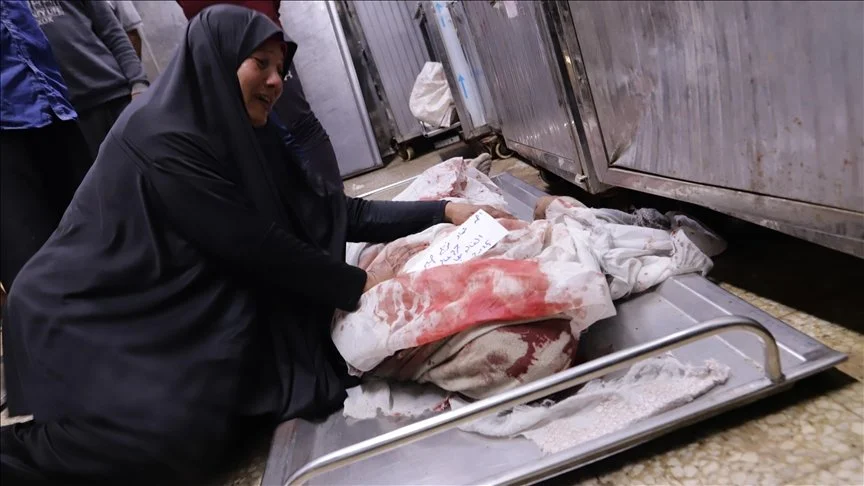GAZA CITY, Palestine / ISTANBUL
More than 700 Palestinians, mostly children, have been killed by Israeli army fire while collecting water since October 2023, local authorities said on Monday.
“The Israeli occupation continues to wage a systematic and deliberate war of thirst against the Palestinian people in Gaza, in a flagrant violation of all international and humanitarian conventions,” Gaza’s government media office said in a statement.
The office accused Israeli forces of using water as a weapon of war “to deprive the Palestinians of their most basic rights.”
It noted that Israeli army forces had committed 112 massacres against Gazans collecting water, killing more than 700 people, mostly children, since October 2023.
On Sunday, at least 12 people were killed, including eight children, by Israeli fire while waiting to collect water in the Nuseirat refugee camp in central Gaza.
The media office said that over 720 water wells were deliberately destroyed by the Israeli army in Gaza.
“Attacks on water wells have deprived more than 1.25 million Palestinians of access to clean water," it added.
According to the statement, the Israeli army has obstructed the entry of 12 million liters of fuel monthly, the necessary amount to operate the minimum number of water wells, sewage stations, waste collection mechanisms, and other vital sectors in Gaza.
“This has caused a complete paralysis in water and sewage networks and the spread of epidemics, mainly among the children,” it added.
The media office called on the international community and human rights organizations to take immediate action to stop Israel’s systematic and deliberate use of water as a war weapon and allow the necessary amount of fuel and heavy equipment to reoperate water wells and drainage stations.
Israel has kept Gaza crossings closed to food, medical, and humanitarian aid since March 2, deepening an already severe humanitarian crisis in the enclave, affecting Gaza’s 2.4 million residents. The blockade has pushed the region into famine conditions, with many reported deaths due to hunger.
Rejecting international calls for a ceasefire, the Israeli army has pursued a brutal offensive on the Gaza Strip since Oct. 7, 2023, killing over 58,000 Palestinians so far, most of them women and children. The relentless bombardment has destroyed the enclave and led to food shortages and a spread of disease.
Last November, the International Criminal Court issued arrest warrants for Israeli Prime Minister Benjamin Netanyahu and his former Defense Minister Yoav Gallant for war crimes and crimes against humanity in Gaza.
Israel also faces a genocide case at the International Court of Justice for its war on the enclave.
via AA.com. Middle East


